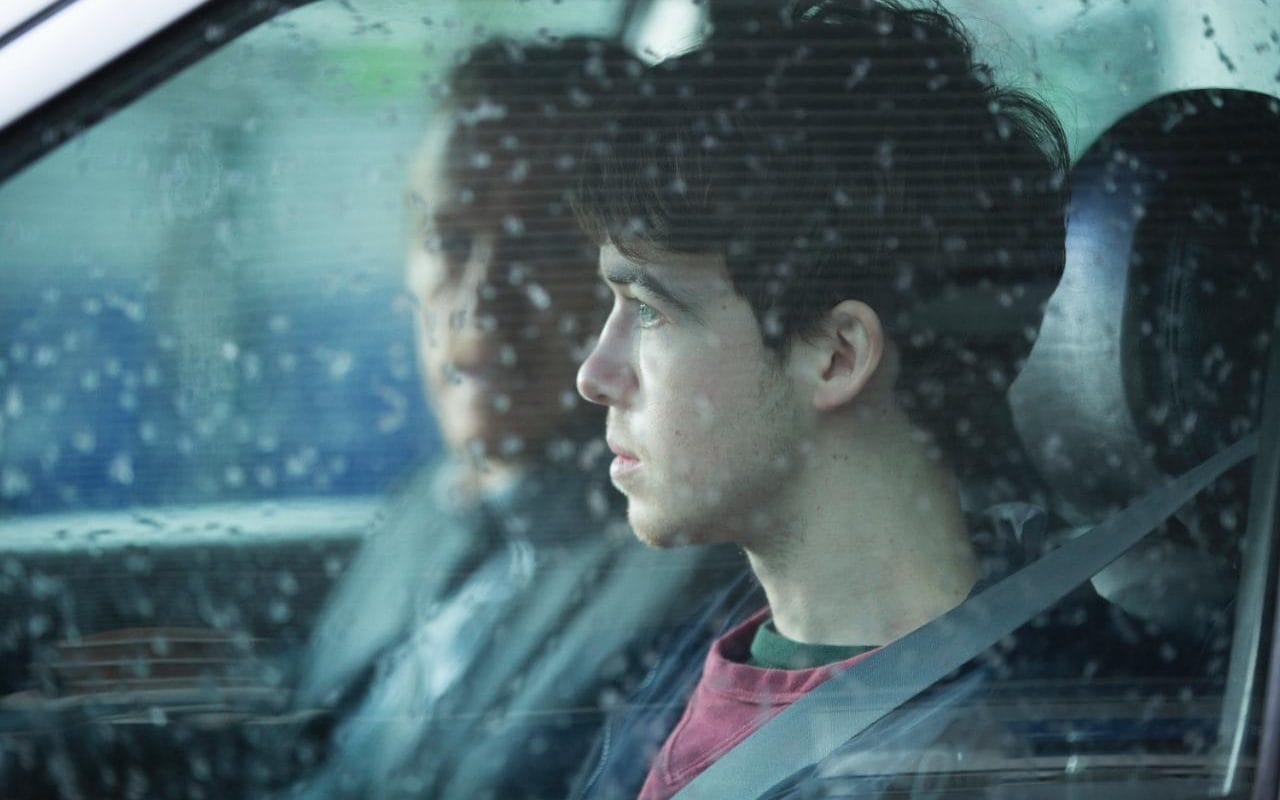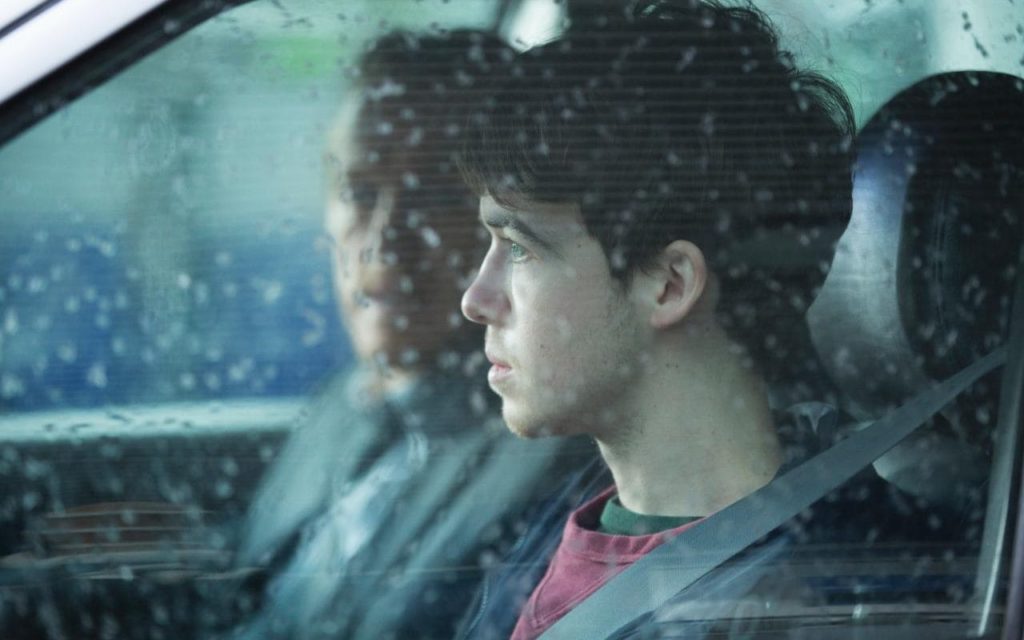In series two BLACK MIRROR episode White Bear, a woman was put on trial for the murder of a child and subjected to a never ending cycle of torture in a Justice Park, in which every day her memory was wiped and she was forced to run for her life as she was pursued by masked, gun-toting pursuers.
Compare that to Shut Up and Dance and White Bear is Toy Story.
From the start of the third episode in the new third series of BLACK MIRROR, it was clear that this was going to be something a little tougher than the previous two. There was no obvious technology or any flashy visual styles to help us connect with this new world. Instead, everything we saw was based solely in our own world
Realistic dialogue and a cold aesthetic immediately grounded us in reality and for an hour it refused to let us be comforted by the idea that this was a fiction.
The story is simple and vaguely similar to this year’s underrated techno-paranoia thriller ‘Nerve’. When a virus infects the laptop of teenage Kenny (Alex Lawther) and records him through his webcam whilst he pleasures himself, he’s immediately blackmailed into performing a series of tasks via text message.
As the increasingly more dangerous and illegal tasks lead him further astray, he meets up with Jerome Flynn’s Hector, a married father whose indulgence in prostitutes has gotten him the attention of the mysterious hackers.
The two work great together, even forming a sort of bizarre bond and despite the inherent panic of the episode, we seem to enjoy their company. Yet, as the episode builds to its conclusion, things take a horribly, dark turn.
I must say right now, I sort of guessed the final reveal at the start. Which isn’t to say that this episode was about trying to guess any sort of twist, but rather what actions and consequences it poses say about our society.
Though I pretty much had a handle on what the final reveal would be, it didn’t stop me from enjoying the episode as a piece of artistic fiction and even sympathising with the ‘protagonists’.
This is down to the great script from Charlie Brooker and William Bridges who make this the most grounded episode of the series. Like the next episode ‘San Junipero’, it kind of doesn’t feel like an episode of Black Mirror. The conceit, whilst technologically appropriate is also incredibly simple and provides a nice metaphor for guilt.
Yet it could easily be a one-off drama, like Channel 4’s mini-series National Treasure (which I felt was like an extended episode of Black Mirror). But in comparisons to previous episodes, it closely resembles the evoked sympathy for the lead in White Bear.
Both episodes ask us to question what makes a person good or evil and as we struggle to come to terms with the finale, which phenomenally uses Exit Song by Radiohead to nail its conclusion.
When BLACK MIRROR is at its best it makes us confused on how to feel. Do we sympathise? Do we automatically hate? I think that’s the point. We’re not meant to feel either or, just sit in a state of fuzzy insecurity.
Whatever the answer, the final scene was like having a sledgehammer slammed into your chest. I love a good melancholy montage and this one was no different, particularly as the use of diegetic sound from Kenny’s phone is spine-tingling.
In the end, Shut Up and Dance may be the toughest, most watchably repellent episode of Black Mirror to date. In terms of style and substance, it’s the series most simple yet in terms of the questions it poses, it’s complex and unrelentingly bleak.
Here, BLACK MIRROR, have another round of applause.
Verdict






























